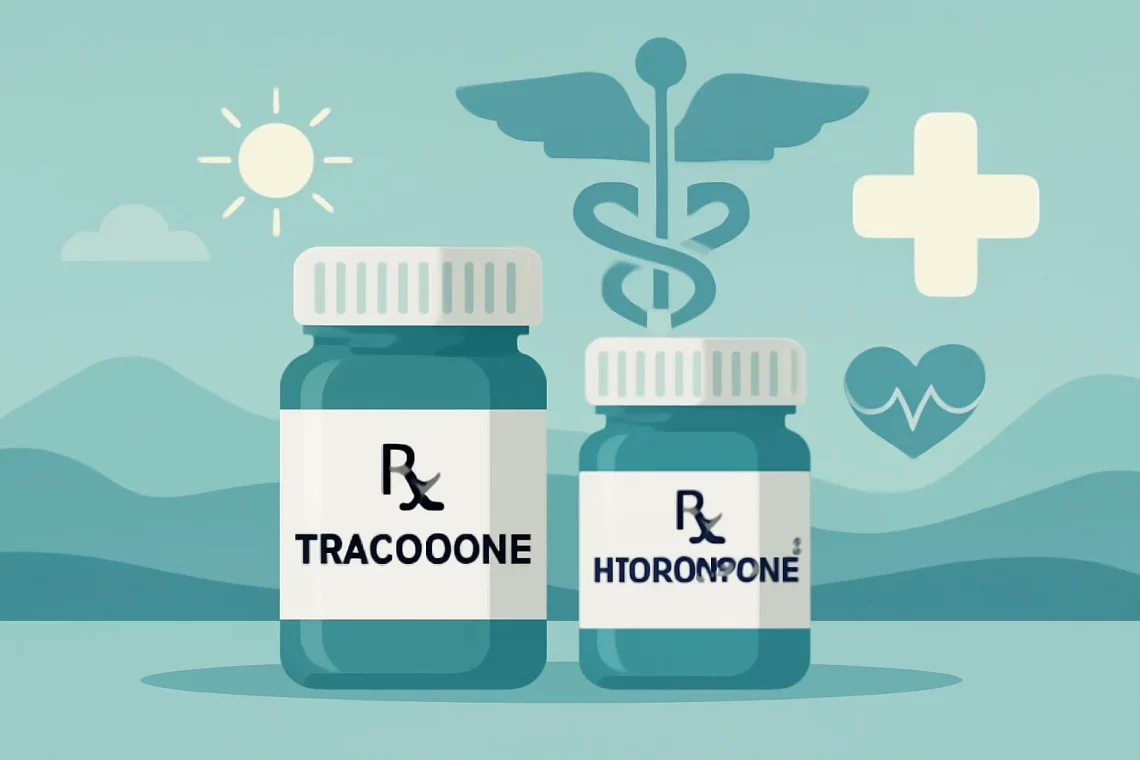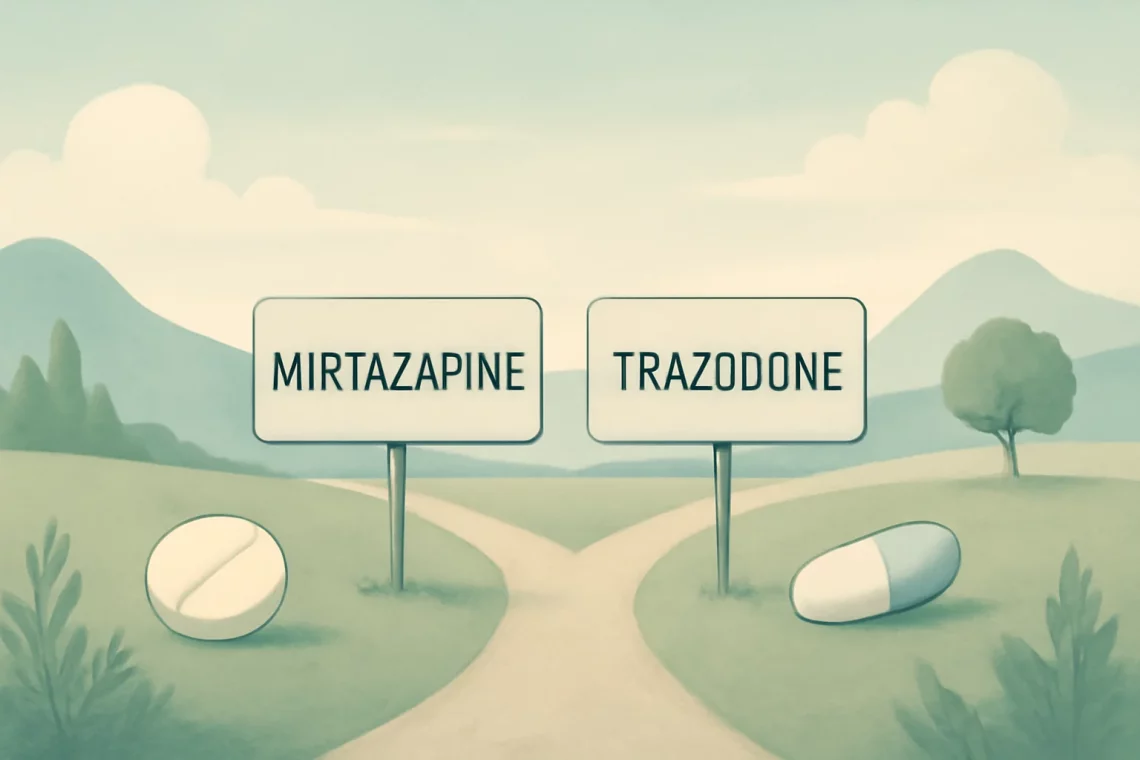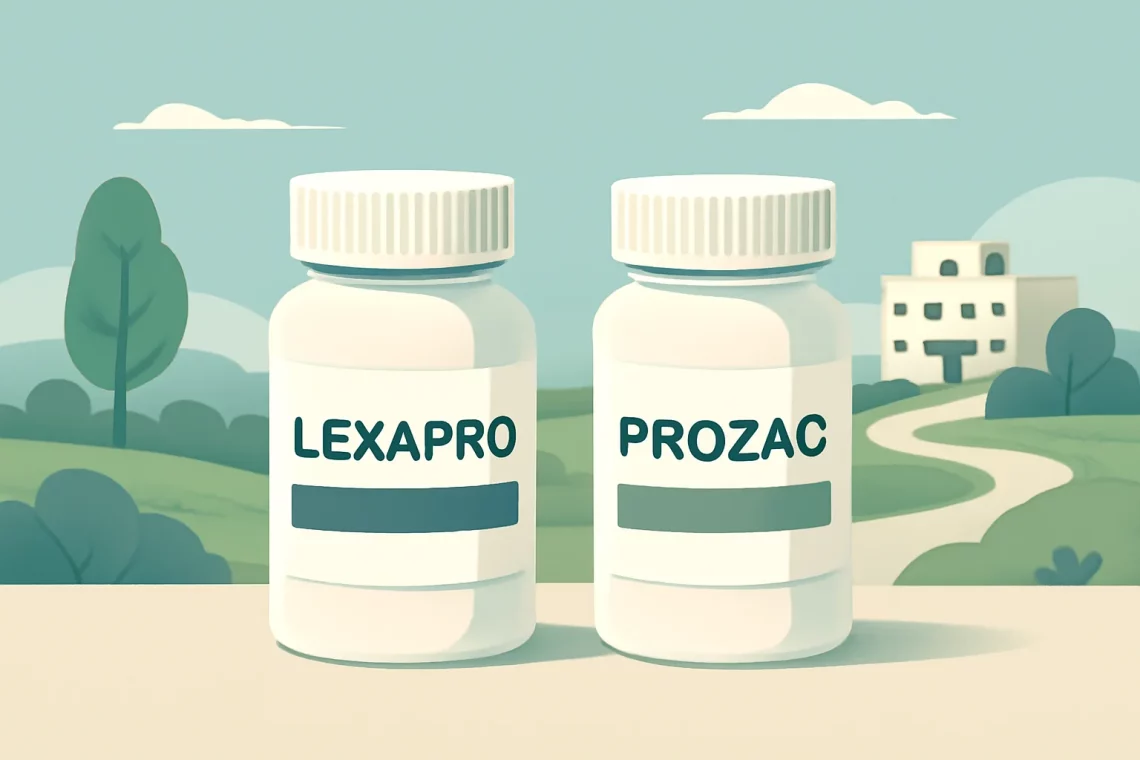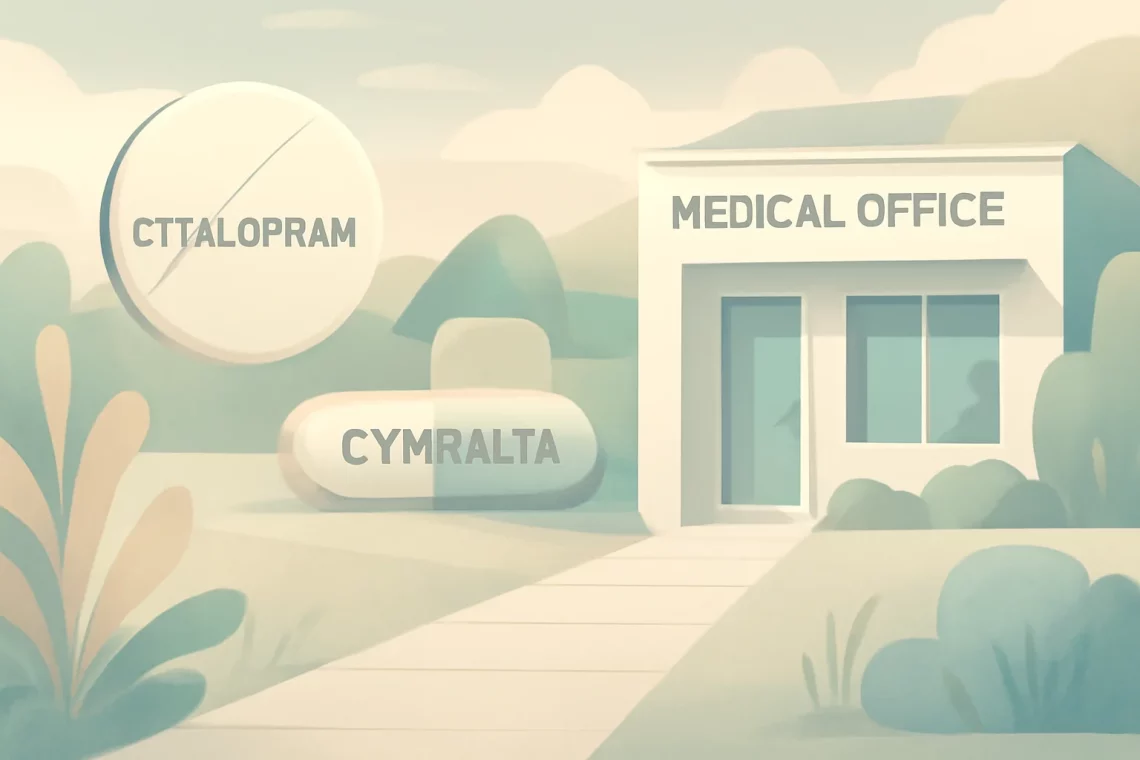-
Cymbalta vs Elavil: A Comprehensive Comparison of Two Antidepressants
Cymbalta and Elavil are two medications frequently prescribed for various mental health conditions, particularly depression and anxiety disorders. As the understanding of mental health evolves, so too do the treatment options available to patients. Cymbalta, generically known as duloxetine, is a serotonin-norepinephrine reuptake inhibitor (SNRI) that has gained popularity for its dual-action mechanism of targeting both serotonin and norepinephrine, neurotransmitters that play significant roles in mood regulation. On the other hand, Elavil, or amitriptyline, belongs to a class of medications known as tricyclic antidepressants (TCAs), which have been used for decades to treat depression, anxiety, and even chronic pain. Both medications have their unique profiles, side effects, and potential interactions,…
-
Trazodone vs Hydroxyzine: Which is Better for Your Needs?
The distinction between various medications can often be a complex and daunting task, especially when it comes to understanding their specific uses, effects, and potential side effects. As our understanding of mental health and wellness evolves, so too does the array of pharmacological options available to those seeking relief from conditions such as anxiety, depression, and insomnia. Two medications that frequently come up in discussions around treatment options are Trazodone and Hydroxyzine. These drugs, while both used to treat anxiety and sleep disorders, belong to different classes and have unique mechanisms of action. Trazodone is primarily known as an antidepressant, but it is also often prescribed off-label for insomnia due…
-
Citalopram vs Effexor XR: Choosing the Right Antidepressant for You
Citalopram and Effexor XR are two medications commonly prescribed for the treatment of various mental health disorders, including depression and anxiety. As mental health continues to be a significant concern worldwide, understanding the differences between these two medications can help individuals make informed decisions about their treatment options. Both medications have their unique mechanisms of action, side effects, and benefits, which can significantly influence a patient’s response to treatment. Citalopram, a selective serotonin reuptake inhibitor (SSRI), is primarily used to alleviate symptoms of major depressive disorder. It works by increasing serotonin levels in the brain, which can help improve mood and emotional stability. On the other hand, Effexor XR, or…
-
Mirtazapine vs Trazodone: Which Antidepressant is Right for You?
Mirtazapine and trazodone are two medications commonly prescribed for mental health conditions, particularly for anxiety and depression. In recent years, there’s been growing awareness of the mental health crisis affecting individuals globally, leading to increased discussions about the most effective treatment options. Both mirtazapine and trazodone function as antidepressants, but they have distinct mechanisms of action and side effect profiles, which can influence a physician’s choice based on individual patient needs. As the stigma around mental health continues to diminish, more people are seeking help and exploring various treatment avenues. This shift in attitude has prompted patients and healthcare providers alike to delve deeper into the pros and cons of…
-
Duloxetine vs Venlafaxine: Which Antidepressant is Right for You?
Duloxetine and venlafaxine are two medications commonly used to treat various mental health conditions, particularly depression and anxiety disorders. Both belong to the class of drugs known as serotonin-norepinephrine reuptake inhibitors (SNRIs), which work by increasing the levels of certain neurotransmitters in the brain. These medications are often prescribed when patients do not respond to selective serotonin reuptake inhibitors (SSRIs) or when their symptoms require a broader approach to treatment. The choice between duloxetine and venlafaxine can be challenging for both healthcare providers and patients. Factors such as the specific symptoms being treated, the side effect profiles of the medications, and individual patient responses can all influence this decision. Additionally,…
-
Cymbalta vs Savella: A Comprehensive Comparison of Two Medications
Cymbalta and Savella are two medications frequently discussed in the context of treating chronic pain and mood disorders. Both belong to a class of drugs known as serotonin-norepinephrine reuptake inhibitors (SNRIs), which are designed to help regulate the levels of serotonin and norepinephrine in the brain. These neurotransmitters play crucial roles in mood regulation and pain perception, making these medications valuable tools in managing conditions such as fibromyalgia, anxiety disorders, and major depressive disorder. Despite their similar mechanisms of action, Cymbalta and Savella are prescribed for different indications and can have varying effects on patients. Understanding the distinctions between these two medications is essential for patients and healthcare providers alike.…
-
Lexapro vs Prozac: A Comprehensive Comparison of Two Antidepressants
Depression and anxiety are two of the most common mental health disorders affecting millions of individuals worldwide. As awareness of mental health issues has grown, so too has the range of treatment options available. Among these options, selective serotonin reuptake inhibitors (SSRIs) have gained prominence for their efficacy in treating depression and anxiety-related disorders. Lexapro and Prozac are two of the most well-known SSRIs prescribed by healthcare professionals. While both medications aim to balance serotonin levels in the brain, their formulations and specific uses can vary significantly. Understanding the differences between Lexapro and Prozac is crucial for patients seeking effective treatment for mental health issues. Factors such as side effects,…
-
Citalopram vs Paxil: Understanding the Key Differences and Uses
Citalopram and Paxil are two medications frequently discussed in the context of mental health treatment, particularly for conditions such as depression and anxiety disorders. Both belong to a class of drugs known as selective serotonin reuptake inhibitors (SSRIs), which are designed to increase serotonin levels in the brain. This enhancement of serotonin activity is thought to improve mood and emotional balance. The choice between citalopram and Paxil often raises questions among patients and healthcare professionals alike, as each drug has its own unique profile of benefits and potential side effects. While both medications aim to alleviate symptoms of mental health disorders, they can differ significantly in their effectiveness, tolerability, and…
-
Citalopram vs Cymbalta Which Antidepressant is Right for You
Citalopram and Cymbalta are two commonly prescribed medications that serve distinct purposes in the treatment of mental health conditions. Both medications are utilized to address various forms of depression and anxiety, but they belong to different drug classes and operate through unique mechanisms of action. Understanding the differences and similarities between these two medications can be crucial for patients and healthcare providers alike. As mental health issues continue to rise globally, effective treatments are essential for improving the quality of life for those affected. Citalopram, a selective serotonin reuptake inhibitor (SSRI), primarily targets serotonin levels in the brain to alleviate symptoms of depression and anxiety. On the other hand, Cymbalta,…
-
Sertraline or Escitalopram: Which Antidepressant is Right for You?
Depression and anxiety are prevalent mental health disorders that affect millions of people worldwide. While there are various treatment options available, including therapy and lifestyle changes, medications often play a crucial role in managing these conditions. Among the most commonly prescribed medications are selective serotonin reuptake inhibitors (SSRIs), which are primarily used to treat depression and anxiety disorders. Sertraline and escitalopram are two well-known SSRIs that are frequently discussed in the context of mental health treatment. Both sertraline and escitalopram work by increasing the levels of serotonin in the brain, a neurotransmitter that significantly influences mood, emotions, and overall mental well-being. However, despite their similarities, these two medications have distinct…







































